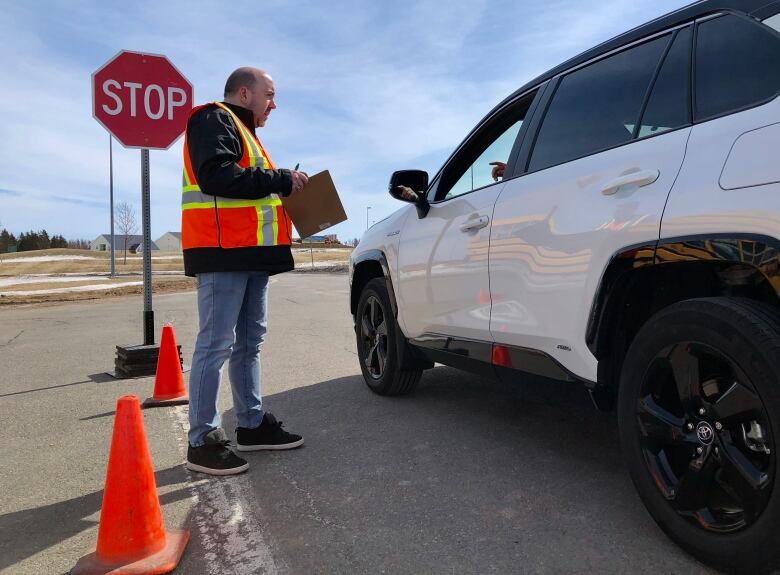Dramatic drop in traffic at Confederation Bridge due to COVID-19 pandemic
Is the bridge suffering financially, of course but so is everybody else

Confederation Bridge has seen its car traffic plummet as travellers heed health officials warnings to stay home.
Car traffic is down 90 per cent of what it was this time last year, according to Michel LeChasseur,general manager of Strait Crossing Bridge Ltd.
Truck traffic is down too, butnot as dramatically. It's down about 12 per cent of what it was last year, because many big trucks continue to bring essential loads, including food, to the Island, he said.
LeChasseursaid he started to see a drop in traffic immediately after the World Health Organization declared COVID-19 a pandemic. He said that drop was even more dramatic once P.E.I. and New Brunswick put checkpoints in place on either side of the 12.9 kilometre bridge, starting on March 23.
LeChasseur says it's important that everybody follows the direction of the chief public health officer, so the drop in traffic is not unexpected.
"Is the bridge suffering financially? Of course. But so is everybody else," said LeChasseur.

"Everybody is affected so we're certainly not unique and like everybody else we want to work together to make sure we have this under control."
New protective measures for staff
The Confederation Bridge is an essential service so they have maintained staffing levels, he said.
The company has 45 employees working at the bridge. They used to work in teams, sharing the same shifts and workdays.
But now their hours have been staggered, so if one person gets sick, the whole team doesn't have to stay home for 14 days, he said.

Toll booth operators no longer share booths and they no longer accept cash.
They have also temporarily suspended the pedestrian shuttle to ensure physical distancing can be maintained.
'We have to work together'
LeChasseur said they have not had any complaints. He said people understand that these measures are necessary.
As for whether the losses now could impact tolls later, LeChasseur said those discussions are for another day.
LeChasseur said the bridge may see a further reduction in traffic if construction projects on the Island come to a halt.
"We have to work together to follow the orders of the public authorities," he said.
COVID-19: What you need to know
What are the symptoms ofCOVID-19?
Common symptoms include:
- Fever.
- Cough.
- Tiredness.
But more serious symptoms can develop, including difficulty breathing and pneumonia, which can lead to death.
Health Canada has built aself-assessment tool.
What should I do if I feel sick?
Isolate yourself and call 811. Do not visit an emergency room or urgent care centre to get tested. A health professional at 811 will give you advice and instructions.
How can I protect myself?
-
Wash your hands frequently and thoroughly.
-
Avoid touching your eyes, nose and mouth.
-
Clean regularly touched surfaces regularly.
-
Practisephysical distancing.
More detailed information on the outbreak is available on thefederal government's website.












_(720p).jpg)


 OFFICIAL HD MUSIC VIDEO.jpg)
.jpg)



























































































